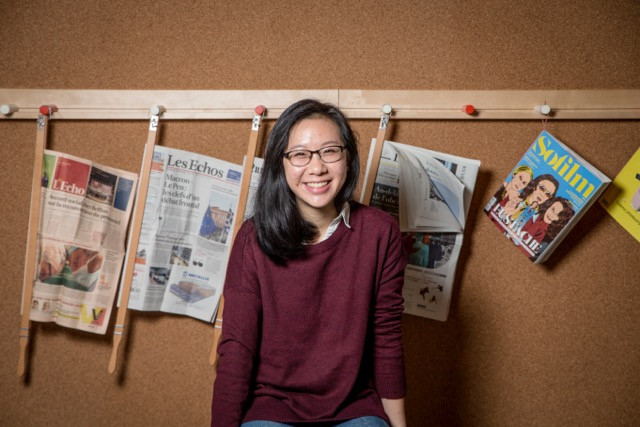In 2015, Erasmus+ enabled 678,000 Europeans to study, train, work and volunteer abroad.
The programme was created to reinforce the European dimension by encouraging transnational cooperation between universities and the European mobility of students (as depicted in the cult 2002 film “The Spanish Apartment”).
Olga Alessandro, a third-year economics student at the University of Luxembourg, spent three months earlier this year at the University of Brno in the Czech Republic. She summarised her experience by saying:
“I was really surprised because I really enjoyed everything: the university, the organisation, the lectures, the people, the university student residence. I was in a shared room, and I was very sceptical initially to live with another person, but it turned out to be great!”
Cynthia Chu Koye Ho, a third-year law student on the Ile de la Réunion, managed to get her six-month stay in the grand duchy extended to a year, because she likes it so much:
“The Ile de la Réunion is the same size as Luxembourg, but in the middle of the sea, so it was becoming a bit claustrophobic. I wanted to see other landscapes, other countries. I also wanted to become more independent from my parents.”
Both women were positive about the differences in teaching methods. For Cynthia, the teaching at university here is more interactive; “they ask more from the students, like study the handouts, ask questions, be curious. In Réunion, it’s the same system as in France, so you just sit there and listen.”
For Olga, the main difference was the preparation for the weekly seminars:
“The compulsory assignments all counted for the final grade. I liked that--it helps you to learn constantly because you know you have to produce work that is graded as well.”
However, an Erasmus year is never just about university; it’s also, and probably mostly, about learning a new culture, often a new language, and especially about meeting fellow like-minded students from all over the world.
Cynthia observed that “they use Luxembourgish as we use the dialect (créole), and I thought: ‘oh that’s nice!’ We use créole inside the family, with friends or sometimes with the administration, but we use it less at school, because they have to teach us in French.”
Olga praised Brno: “The city was great! I was expecting a poor and industrial city in the East. But it is cute and there were nice places to hang out--I was surprised.”
Exploring the region is also part of it. Both students travelled extensively during their Erasmus+ experience. Olga reflected on the programme: “It’s very important, it shows the common identity, that there are no borders, that Europe is one country actually.”
Cynthia agrees: “You can discover other things and maybe even more about yourself. Before I came here, I was more shy to talk to people and now it’s better: I can talk to anyone!”
This article was first published in the June 2017 issue of Delano magazine. Be the first to read Delano articles on paper before they’re posted online, plus read exclusive features and interviews that only appear in the print edition, by subscribing online.
